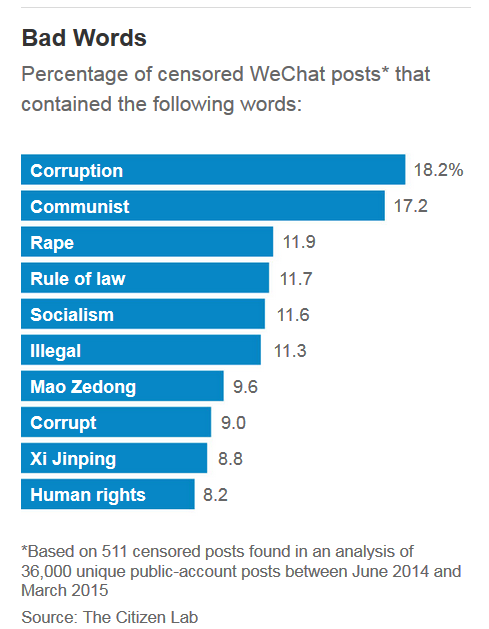Archive for Language on the internets
May 4, 2018 @ 2:09 pm· Filed by Neal Goldfarb under Language and society, Language and technology, Language on the internets, Language play, Neologisms, Words words words
No, The Bureau of Linguistical Reality is not something dreamed up by Borges, or the Firesign Theatre. It actually exists, or at least it exists in the same state of electronic virtual actuality as Language Log, YouTube, and the Wayback Machine.
The Bureau of Linguistical Reality was established on October 28, 2014 for the purpose of collecting, translating and creating a new vocabulary for the Anthropocene.
Our species (Homo Sapien) is experiencing a collective “loss of words” as our lexicon fails to represent the emotions and experiences we are undergoing as our habitat (earth) rapidly changes due to climate change and other unprecedented events. To this end the The Bureau of Linguistical Reality is solemnly tasked generating linguistic tools to express these changes at the personal and collective level.
Cartographers are redrawing maps to accommodate rising seas, psychologists are beginning to council people on climate change related stress, scientists are defining this as a new age or epoch. The Bureau was thus established, as an interactive conceptual artwork to help to fill the linguistical void in our rapidly changing world.
Read the rest of this entry »
Permalink
May 2, 2018 @ 10:11 am· Filed by Victor Mair under Language and politics, Language on the internets, Topolects
The porcine princess seems innocuous enough, but for some reason(s), the Chinese government has decided to censor her:
"China bans Peppa Pig to combat 'negative influence' of foreign ideologies" (businessinsider.com)
"Chinese video app targets 'subversive' Peppa Pig in online clean-up" (CNN)
"China gives 'subversive' Peppa Pig the chop" (AFP)
More links here.
Why go after poor Peppa Pig? How about Hello Kitty? Micky Mouse?
Read the rest of this entry »
Permalink
April 19, 2018 @ 12:19 am· Filed by Neal Goldfarb under coordination, Grammar, Intelligibility, Language on the internets, Parsing, Psycholinguistics
In "More Cohen Businesses Coming to Light," on Talking Points Memo, Josh Marshall writes:
The biggest taxi operator in New York, Evgeny “Gene” Friedman, now manages Cohen’s 30+ NYC medallions or at least did the last time we spoke to him. Friedman has been struggling for the last year to keep his taxi businesses out of bankruptcy and himself jail.
The final three words of the boldfaced clause present a weird, and dare I say unusual, case of double ellipsis. The semantic content communicated by those three words (in the context of the sentence) is richer than you'd think could be expressed by only three words, especially given that one of them is merely the conjunction and. That content can be represented as follows, with the struck-through text standing for the content that the reader must infer:
Friedman has been struggling for the last year to keep his taxi businesses out of bankruptcy and to keep himself out of jail.
There's nothing unusual about the first omission; I don't see anything wrong with the clause to keep his taxi businesses out of bankruptcy and himself out of jail. But the omission of out of strikes me as very strange, and what's even stranger is that to my ear, the clause is worse if to keep is put back:
* Friedman has been struggling for the last year to keep his taxi businesses out of bankruptcy and to keep himself jail.
Read the rest of this entry »
Permalink
March 29, 2018 @ 10:31 am· Filed by Victor Mair under Alphabets, Language and politics, Language on the internets, Quizzes, Uncategorized, Writing systems
A couple of weeks ago, we asked: "The end of the line for Mandarin Phonetic Symbols?" (3/12/18)
The general response to that post was no, not by a long shot.
Now, in addition to all the other things one can do with bopomofo, one can use it to confound PRC trolls, as described in this article in Chinese.
Read the rest of this entry »
Permalink
March 1, 2018 @ 1:45 am· Filed by Neal Goldfarb under Awesomeness, Language and the media, Language on the internets, Language play, Linguistics as a discipline, Pragmatics, Silliness, Speech-acts, This blogging life, WTF
A few days ago, I posted a post consisting of…
a screenshot of a tweet (by me) consisting of…
a screenshot of a Language Log post (by me) consisting of…
a screenshot of a tweet (by me) consisting of…
a screenshot of a tweet by Lynne Murphy, a linguistics professor, quote-tweeting* an earlier tweet by Benjamin Dreyer, who is (although I didn’t know it at the time) a vice president, Executive Managing Editor, and Copy Chief at Random House.
* retweeting and adding a comment
The post was titled, "There's a fine line between recursion and intertextuality."
A screenshot of the post is provided below the fold—but I hasten to add that I am providing the screenshot solely as a convenience to the reader, to save them the trouble of having to leave this post in order to look at that one, should they be so inclined.
Read the rest of this entry »
Permalink
February 26, 2018 @ 8:22 pm· Filed by Victor Mair under Language and computers, Language and politics, Language on the internets, Taboo vocabulary
Since the announcement by the Chinese Communist Party (CCP) yesterday that the President of China would no longer be limited to two five-year terms in office, as had been the case since the days when Chairman Mao ruled, there has been much turmoil and trepidation among China watchers and Chinese citizens. Essentially, it means that Xi Jinping has become dictator for life, which is not what people had been hoping for since Richard Nixon went to China 46 years and 5 days ago. What everyone had expected was that China would "reform and open up" (gǎigé kāifàng 改革開放), which became an official policy as of December, 1978. Instead, all indications from the first five years of Xi's regime and the newly announced policy changes regarding Xi Jinping thought and governance are that China has jumped right back to the 1950s in terms of policies and procedures.
Read the rest of this entry »
Permalink
February 13, 2018 @ 11:03 pm· Filed by Victor Mair under Diglossia and digraphia, Language and culture, Language on the internets, Morphology

What's going on here? How did Justin Bieber become an infix (more precisely tmesis) inserted between the "O" and the "K" of "OK"?
Read the rest of this entry »
Permalink
February 10, 2018 @ 2:42 pm· Filed by Victor Mair under Language and politics, Language on the internets
Why would "rice rabbit" become a buzzword in China?
The answer is simple: it's one of the ways that Chinese netizens try to get around the banning of #MeToo by government censors. The CCP doesn't like #MeToo because it enables women to organize and speak out against harassment and repression.
"China Is Attempting To Muzzle #MeToo", by Leta Hong Fincher, NPR (2/1/18)
Read the rest of this entry »
Permalink
February 8, 2018 @ 10:34 pm· Filed by Victor Mair under Language and computers, Language on the internets, Names
The immediate reason for writing this post is the curiosity of an important Chinese product, Shadowsocks, whose name is known only in English and whose author, clowwindy, has only an English name.
Shadowsocks is an open-source encrypted proxy project, widely used in mainland China to circumvent Internet censorship. It was created in 2012 by a Chinese programmer named "clowwindy", and multiple implementations of the protocol have been made available since. Typically, the client software will open a socks5 proxy on the machine it is run, which internet traffic can then be directed towards, similarly to an SSH tunnel. Unlike an SSH tunnel, shadowsocks can also proxy UDP traffic.
Source
Read the rest of this entry »
Permalink
January 26, 2018 @ 3:36 pm· Filed by Victor Mair under Diglossia and digraphia, Language on the internets, Writing systems
Screenshot from Nikita Kuzmin's WeChat:

Read the rest of this entry »
Permalink
December 31, 2017 @ 1:05 am· Filed by Victor Mair under Language and culture, Language and society, Language on the internets
The first two conditions, along with eight others, are covered in this interesting Sixth Tone article:
"An Awkward, Greasy Year: China’s Top Slang of 2017 " (12/28/17) by Kenrick Davis
Davis's presentation is excellent, so let us begin this post with two montages accompanying his article.
Read the rest of this entry »
Permalink
December 17, 2017 @ 9:00 pm· Filed by Victor Mair under Language and computers, Language and culture, Language and politics, Language on the internets, Slogans
Two powerful agencies of the PRC central government, Zhōnggòng zhōngyāng jìlǜ jiǎnchá wěiyuánhuì 中共中央纪律检查委员会 ("Central Commission for Discipline Inspection") and Zhōnghuá rénmín gònghéguó jiānchá bù 中华人民共和国监察部 ("People's Republic of China Ministry of Supervision"), have issued "bā xiàng guīdìng biǎoqíng bāo 八项规定表情包" ("emoticons for the eight provisions / stipulations / rules"); see also here. The biǎoqíng bāo 表情包 (lit., "expression packages") were announced on December 4, 2017, five years to the day after the rules themselves were promulgated.
English translations of the so-called "Eight-point austerity rules" or "Eight-point regulations" may be found here and here. The rules were designed to instill greater discipline among Chinese Communist Party (CCP) members, to bring the Party "closer to the masses", and to reduce bureaucracy, extravagance, and undesirable work habits among Party members.
Read the rest of this entry »
Permalink
December 17, 2017 @ 4:55 am· Filed by Victor Mair under Language and politics, Language on the internets
With over 980 million monthly active users, WeChat is an extremely popular messaging app in China. However, in the Orwellian climate of the PRC, you had better watch your language carefully, lest you get whisked off to jail without trial. Here are some words that can result in your incarceration:

Read the rest of this entry »
Permalink


